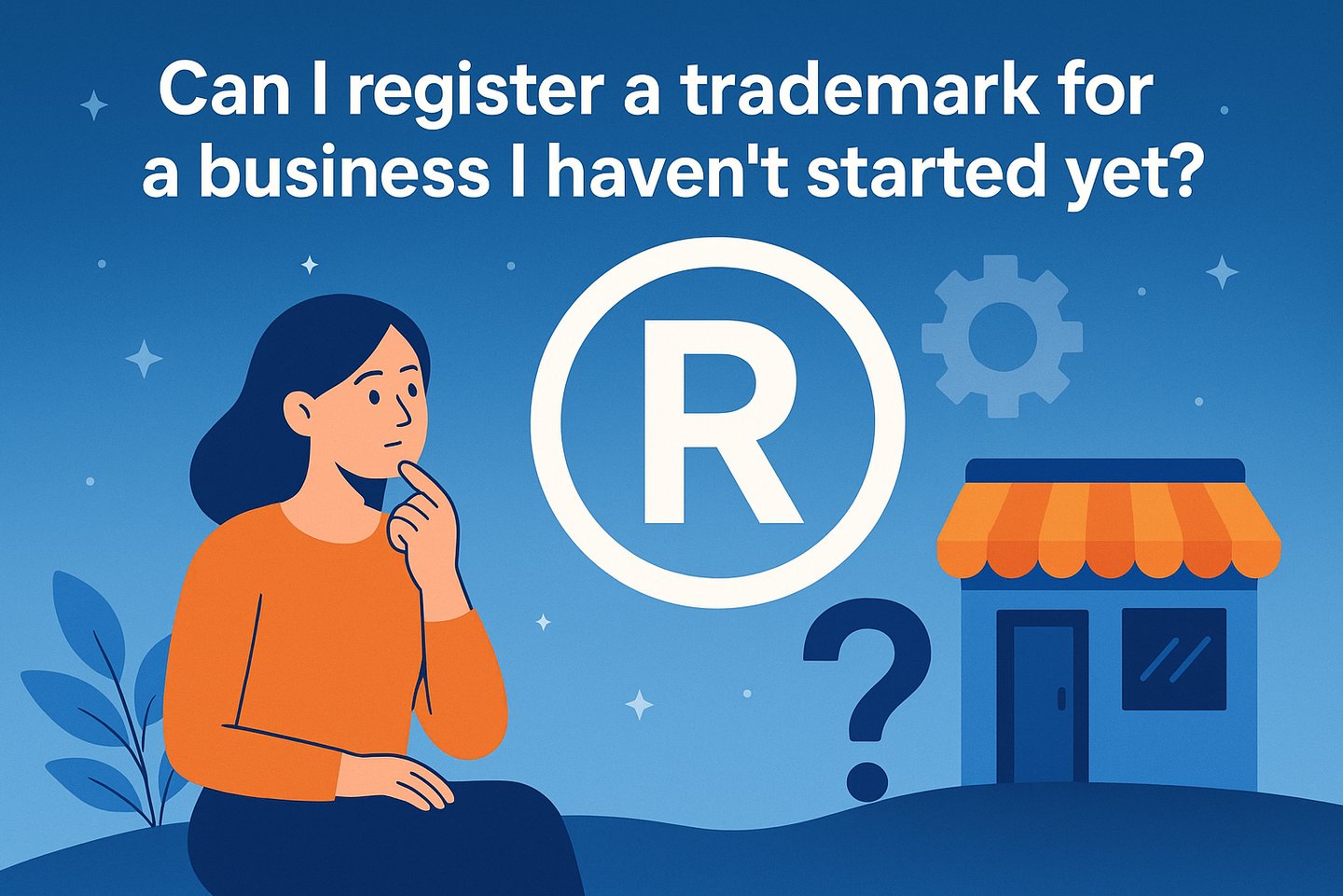CAN I REGISTER A TRADEMARK FOR A BUSINESS I HAVEN’T STARTED YET?
The following article particularly answers the question of whether a trademark can be registered for a business that has not started yet. It also focuses on the procedure of filing a trademark in India and the key requirements for registering a trademark for a business that is not launched yet.
IPR
Shivangi Taneja
9/10/20253 min read


INTRODUCTION
People often face the dilemma of whether they can register their trademarks prior to the launch of their business. The answer to this conundrum is affirmative. A trademark can be registered irrespective of the fact that a business has started or not. In many jurisdictions, including the United States of America, one has the option of filing a trademark application on an “intent to use” basis. Similarly, in India it is known as the “proposed to be used” application.
Filing the above-mentioned application permits an individual or company to secure their rights to the mark while they are in the process of preparing to use it in commerce. It is specifically useful when one has plans to launch their brand or product in the near future but has not yet started selling or offering it to the public.
But it is pertinent to note that in order to complete the trademark registration process and obtain the actual registration, there is eventually a need to demonstrate the actual use of the mark in commerce. This typically involves submitting evidence of the mark’s use in connection with the specified goods or services.
HOW TO REGISTER A TRADEMARK?
In order to register a trademark, one must first conduct a trademark search on the official IP India website. After conducting a thorough search of the subject trademark, an application needs to be filed, for which a form called TM-A has to be filled out through the IP India portal. The details regarding the trademark, the goods or services it represents, and supporting documents like identity and address proof need to be provided for the same. After filing, the mark is examined and scrutinized by the Trademark Examiner and later on published in the Trademark Journal for opposition if all the requirements are fulfilled. If no oppositions are filed, a trademark registration certificate is issued by the Trademark Registry.
WHAT IF A BUSINESS IS NOT LAUNCHED YET?
If the proprietor of a trademark had not started doing business yet, it is absolutely fine. The Indian trademark laws provide us with two filing options: 1) when the mark is being used in business and 2) when the mark has not yet been used in business but will be used in the near future. The second option is known as the proposedtrademark application.
Usually, one cannot register a trademark for non-business purposes or without a business. If a person or a company has a business that is at an operational stage and still in the process of associating the trademark with the goods or service, they can apply their trademark under the second category. The Trademark Office will grant them sufficient time to gather evidence, or specimens, to show that they are using the mark with their goods or services. Nonetheless, if after that particular period, the person fails to gather enough evidence, then they can apply for an extension to gather sufficient evidence of the use of the mark.
When it is said that a mark should be used in commerce, it basically means that it should be used in such a way that allows either its customers or future customers to relate the particular mark with the goods or services. For example, ‘A’ owns a Cuban coffee shop called La Brew, and he has a logo with a brown plastic coffee shot cup with a croquette on top on a white background. He also uses this name and logo on his menus, business cards, merchandise, website, Zomato, Swiggy, and other food delivery applications, where it can be clearly seen what goods “A” is providing with his name and logo. This example is the type of evidence that the Trademark Examiner would be looking for as evidence pertaining to the use of the subject trademark in commerce.
Once the business is set up, the ownership of the trademark can also be transferred from the name of the proprietor to the company’s name with the help of an assignment deed. An assignment deed should include some value in terms of money. The deed has to be filed with the Trademark Registry, and proof of original ownership and transfer should be attached with the same. By doing this the company will have the legal rights to the trademark in the future. For example:Solo app developers typically register their app names before they are available on the Play Store, or bloggers and influencers usually grab their handles and catchphrases before they start selling their products. These are situations where an individual holds a trademark and not the company.
CONCLUSION
To summarize and conclude the above article, it can be said that a trademark can definitely be registered even if the business has not started yet. Trademarks are a type of intellectual property that not only cater to big companies but also individuals who are willing to believe in their brand’s potential.
